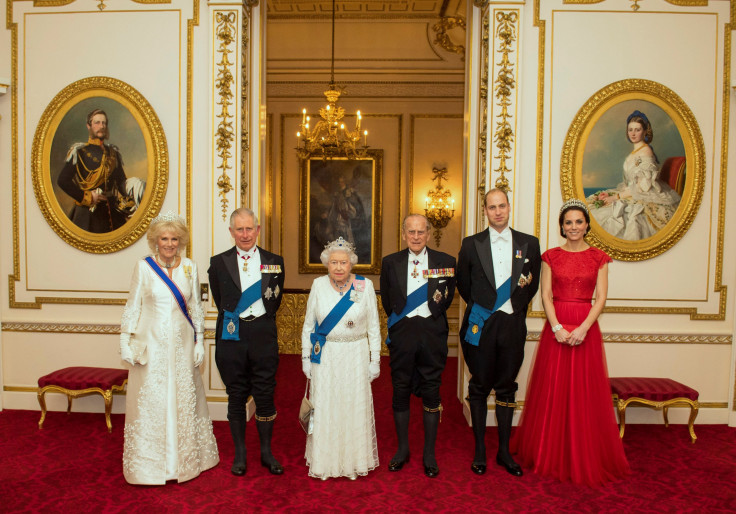Who Will Be King? After Queen Elizabeth Dies, Prince Charles Isn't The Favorite Royal, New Poll Shows

After Queen Elizabeth's death or abdication, most of the British public does not want Prince Charles to succeed the longest reigning monarch, a new survey has found. The Prince of Wales is the first in line to sit on the throne, but a survey published Monday by Opinium Research’s "Monarchy Tracker" showed the public was heavily in favor of Prince William.
According to the survey, 52 percent of the public would prefer to see the queen's grandson Prince William to sit on the throne next, rather than Prince Charles, who received 27 percent of the votes. The online survey was conducted among 2,003 adults from Dec. 29, 2016, to Jan. 3, 2017.
The survey found that much of the monarchy’s popularity lies with the public approval for the queen, as she is seen as being "dedicated, hard working and traditional by Britons."
The survey on the 90-year-old's legacy also yielded questions over who would take the throne next despite the queen showing no signs of stepping down.
Concerns over who would sit on the throne next swirled after the queen skipped the annual royal holiday celebrations, including Christmas and New Year services, due to heavy cold. However, the queen made her first public appearance of 2017 on Jan. 8 when she attended the morning church service at St. Mary Magdalene Church in Sandringham, Norfolk. She later arrived for another church service this Sunday following the death of her former brother-in-law Lord Snowdon, who died Friday at the age of 86.
The queen's illness also gave rise to rumors of her death, while some reports claimed she may decide to give up her royal duties. In case Queen Elizabeth II dies or abdicates, her son Prince Charles will take the throne. The Prince of Wales is the first in line to the British throne, followed by Prince William, the Duke of Cambridge. The third in line to the throne is Prince George, the son of Prince William and Kate Middleton.
The queen took the throne in 1952 after King George VI's death, who did not have any sons. In Britain, the crown is normally passed on from the monarch to the eldest son. But in 2011, the Act of Settlement was changed before Prince George’s birth to ensure succession would not be affected by gender of the child.
“The monarchy clearly retains the support of the British public, and our tracker indicates that the institution is as popular now as it ever was. However, young people are not as invested as the older generation and this does raise questions about the future of the monarchy after the Queen – will the institution survive without one of history’s most respected sovereigns?" James Endersby, managing director of Opinium Research, reportedly said. “One thing we can probably guarantee is that the public fascination with the Royal Family will continue as we anticipate births, engagements and further family drama, all of which are likely to dominate the year’s headlines."
© Copyright IBTimes 2024. All rights reserved.











